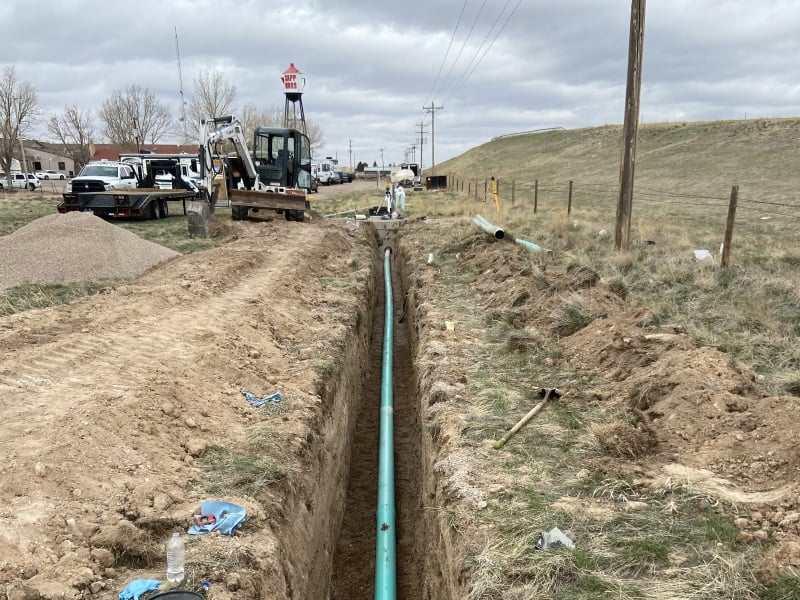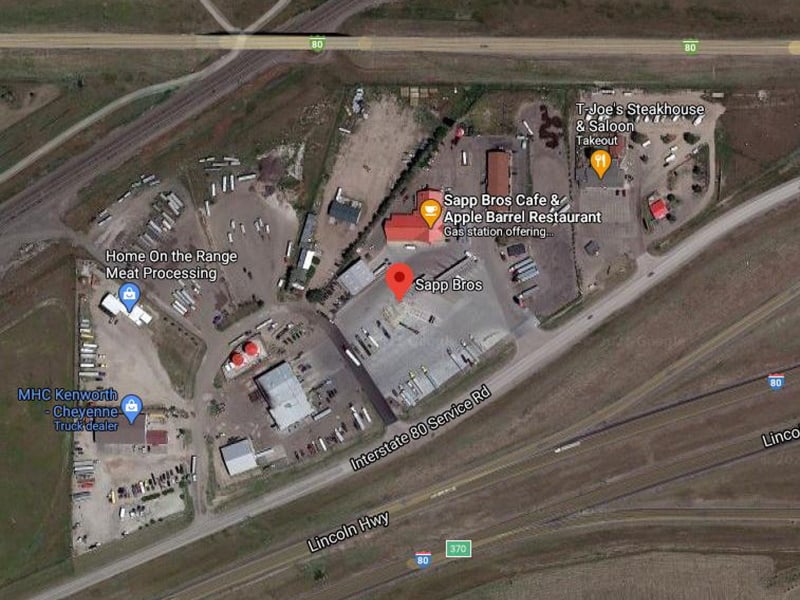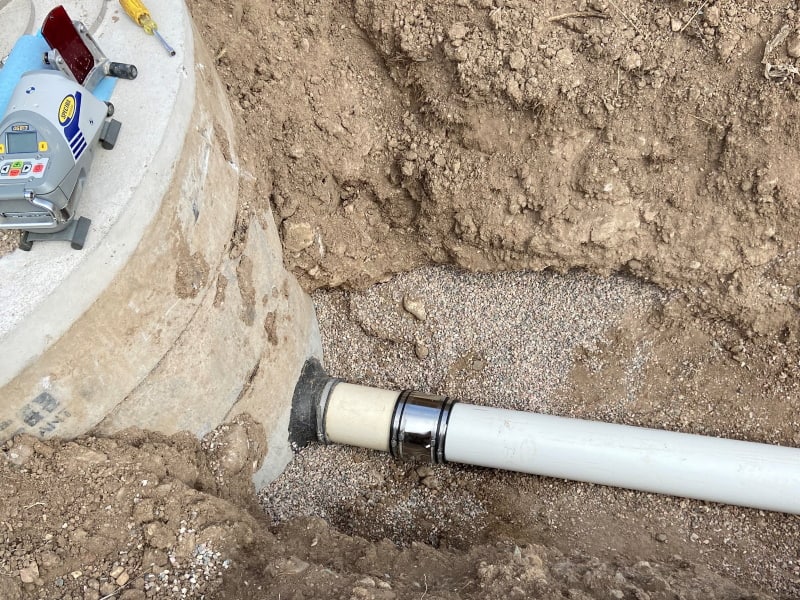Project Profile: Sapp Bros. Travel Centers Water/Wastewater System Assessment, Engineering, Repairs & Consultation
Cheyenne, Wyoming
The location manager for the Cheyenne, Wyoming, Sapp Bros. Travel Center has relied on CGRS’ Compliance, Environmental and Refined Fuels teams to keep his fuel systems in compliance and functioning for years.
Now Willie Kolkman is relying on CGRS for guidance regarding his water/wastewater District’s system, as well.
A gas station, café and restaurant, and an auto repair shop make up the Sapp Bros. Travel Center, which gets its water and wastewater service through the Deike Estates Improvement and Service District. Established in 1984, the District provides water and wastewater services to the surrounding lots because they are outside the Cheyenne Board of Public Utilities’ (BOPU) territory. A three-member Board of Directors comprised of business owners within the District govern it, and Kolkman has managed the water/wastewater system. The other businesses connected to the utility include a hotel, a recreational vehicle park, a meat-processing plant, a truck dealership, a restaurant and bar, and an oil field services company.
The District had received its second Notice of Violation for exceeding the nitrate concentration of 10 milligrams/liter, which is allowed in the monitoring well associated with the wastewater treatment system. No nearby drinking water source wells had reported any issues with nitrate concentration, but Kolkman knew the District needed to address it before any arose. Knowing CGRS had a Water/Wastewater division, he called CGRS CEO/President Eric Hick to bail him out.
“There’s something in the system that’s not operating correctly or it’s not big enough, we’ve outgrown it,” Kolkman said.
CGRS Water/Wastewater Project Engineer Kristan Buck, PhD, CWP, took the lead on the project.
“It is unclear at this time if issues with the wastewater treatment system performance or issues with the monitoring well and/or any surrounding environmental factors are causing the water in the well to be high in nitrate concentration,” she said.
CGRS started assessing the system and historical monitoring well data in August 2020, submitting a Preliminary Engineering Report outlining a plan for further study and sampling to Sapp Bros. and the Wyoming Department of Environmental Quality (DEQ).
“Our outreach and sampling program got underway in January 2021,” Buck said. “We are working with the businesses connected to the wastewater system to monitor and, where necessary, improve their pretreatment practices.
“We are sampling the effluent from the wastewater treatment system to see if it may be the source of the high nitrate concentration in the monitoring well. We will also review data from other monitoring wells and the types of land use in the near area to see if there are other potential sources of nitrate in the groundwater,” she added.
With help from the local vendors who maintain the system, CGRS has identified issues with proper drainage in the pipes in the leach field. CGRS mobilized to the site on April 12 to repair a line in the drain field that didn’t have proper grade for gravity flow, and wrapped up work the next day, before inclement weather set in.
Kolkman said he received no calls and the crew finished ahead of schedule, so he knows they “did just fine.”
Explained: effluent, leachate, permits and limits
The Environmental Protection Agency (EPA) requires large septic systems with leach fields to hold an Underground Injection Control (UIC) Permit, because their treated effluent – the water that flows out from them – is dispersed into or percolates into groundwater and potentially into underlying aquifers that may be drinking water sources.
If not treated sufficiently, this leachate can contaminate potential drinking water sources. Therefore, the UIC Permit requires the system owner/operator to drill a monitoring well and sample water from it for potential contaminants. Deike Estates SID is required to measure nitrate, chloride and ammonia concentrations. The concentration limit of each monitored species that is allowed by the permit is referred to as a Permit Effluent Limit.
“At this time it is unclear if major facility upgrades are required,” Buck said. “It is likely that improvements to pretreatment at the businesses will decrease the loading at the wastewater treatment system. Continued monitoring will help determine if any additional improvements are necessary to meet the permit effluent limits and the system design criteria.”
At this time, CGRS’ scope of work includes:
- Testing wastewater periodically
- Installing new water meters that can be read remotely;
- Making drain-field repairs;
- Replacing the malfunctioning wastewater treatment flow meter with a meter that can be read remotely; and
- Supporting the District in updating its administrative procedures.
“(The CGRS team is) basically handling the whole situation for me,” Kolkman said. “It’s just a turnkey situation. I told them what the problem is and they’re supposed to fix it.
“So far they’ve done everything as expected. They’re very professional and versatile in their knowledge of it, so I think we’ll be OK.”
And as far as being able to turn to a company he knows and trusts to help with a different, seemingly unrelated issue, Kolkman said, “It’s invaluable. It’s hard to put a money figure on it. It’s a good card to have in my wallet to pull out, to save myself when I need to.”





